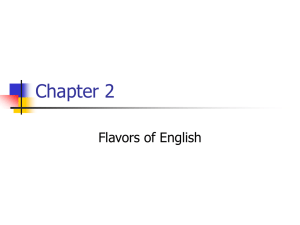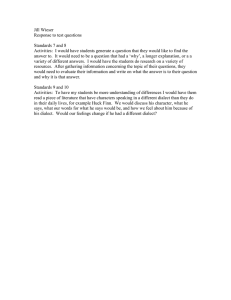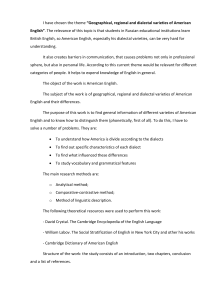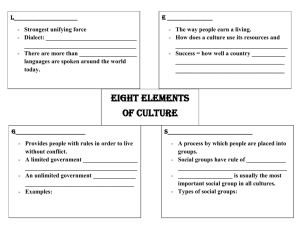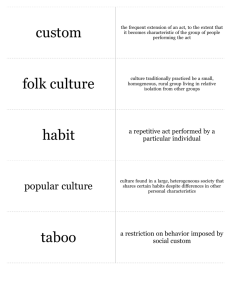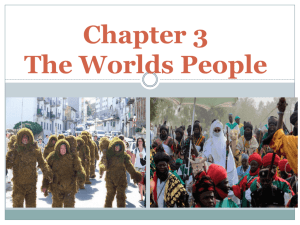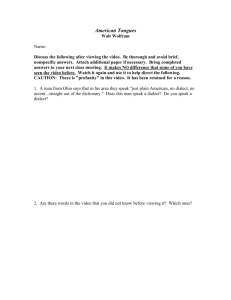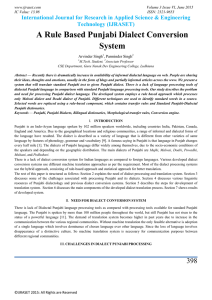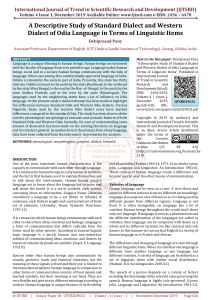Chapter 2 Flavors of English
advertisement
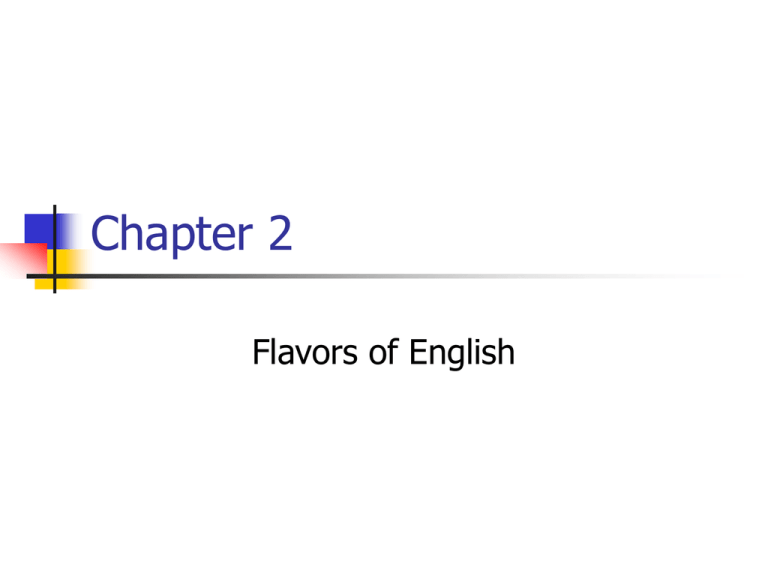
Chapter 2 Flavors of English Review: Re-write in “prestige” dialect I knowed you wasn’t from New Jersey Eddie and him drove home real slow We didn’t do nothing but sing When they was in the planning stages, they underestimated the costs big-time I can’t hardly believe what you said to the coach The boss asked Derek if he had did his clean-up Identify each prescriptive rule that is broken… NOTE: All follow descriptive rules of some dialect… Group Work: (instructions on previous slide) Which of your of these rules are prescriptive? (from a rule book) Which are descriptive? (describes what people really do) Mark each rule with “P” or “D”. Articles precede nouns Do not use unnecessary words A ‘WH’ word or verb usually begins a question Avoid frequent use of be as a main verb “It’s me” is too informal Imperative sentences don’t require subjects Adverbs (such as however) can be moved around in sentences Avoid using the passive voice whenever possible Use precise adjectives and concrete nouns Dialect Identifies Time Location Socio-Economic Community Concentric Circles Fuzzy Circles Style Shifting Hypercorrection Hypercorrection Results from anxiety about being “correct” “Whom did you say was calling?” “We will accept whomever applies.” What’s the underlying source of these errors? (Exercise 2.1) Question: How do you anticipate dialectal differences & grammatical skills will affect WYWTBWYGU? Perhaps If you become a teacher how will you handle dialectal differences in your classroom? or: If you go into business how will you expect dialectal differences to affect your work? Second Language Acquisition Interlanguage Fossilization Developmental Errors Transfer Errors World Englishes Think About It How formal is the professors’ speech in each for your classes? Is there a difference by discipline? “ age? “ gender? How does the style of your professor affect your own speech in class? “ your learning in a class? (Exercise 2.2) Homework Read Chapter 3 TPQ on Chapter 2 ‘Tomorrow’…
